Click here to skip rambling intro
It’s 3 a.m. and Little Girl was up saying “I’m hungry Mum!” Actually she was crying it, which meant Little Boy was up soon after and while warming bottles and feeding twinlets and rocking them back to sleep, I’m thinking over my current work-in-progress and trying to figure out how to develop the themes.
I suppose 3 a.m. is the perfect time for self-reflection and I figured out why, or at least how, I became to be a theme writer. I know not all authors write to theme or think in that way. Some write the story and then the themes emerge which they strengthen later in revision. Some balk at the idea of even enforcing a theme onto writing, that it would take the joy and creativity out of it.
All these approaches are fine and produce fabulously rich and deep stories, richer and deeper and meatier than mine. Being a writer who focuses on theme doesn’t make me more literary than anyone else. It just makes me me.
I typically have both a central and secondary themes in everything I write. They’re formed during the brainstorming stage and carried through and emphasized throughout the entire process. I think for my shorter works, it’s been crucial for helping me to develop a dense story in fewer words. What I realized tonight is that being a theme writer is really an extension of how I learned to write in school. You know all those essays teachers would assign? I’m still trying to figure out this novelist thing, but let me tell you, I kicked butt at writing essays which were all about supporting and arguing a theme. I won contests and scholarships and English teachers’ hearts. (Imagining the dream from A Christmas Story now: A++++++…)
I also kick butt at coloring contests, BTW. No scholarships there, but sometimes candy and some money could be had.
I digress. It’s 3 a.m. I’m in a Virginia Woolf stream of consciousness sort of mood.
***Start here to skip rambling
I realized that my stories were in a sense an extension of how I write essays, just a lot more fun because they’re using swordfights and love scenes and banter between characters rather than, you know, quotes and scenes from other people’s works.
A theme in my current WIP is that romantic love is a male fantasy. That’s not to say it can’t also be a female fantasy, which it most certainly is. But the mistake is often made of relegating romance to being a predominantly female fantasy, perhaps tracing roots back to writers like Jane Austen, especially if you’re looking in the field of historical and especially, especially historical Regency romance. But Jane Austen, with all due respect, is really a neophyte when it comes to writing about love. I mean, she’s like 200 years old? Shakespeare and Chinese contemporary Tang Xianzu are around 500 years and Bai Juyi is over a thousand years old.
The theme of “Romantic love as a male fantasy” in my story comes from the reality that men in imperial China, especially the Tang Dynasty, were the ones who had the luxury and the power and the privilege to think about love in this way. And they definitely had the education and the leisure time to write about love in this way. Shades of this are echoed in Virginia Woolf’s “A Room of One’s Own”, which is a recurring muse for me.
In “Courtesan culture in the “Beili zhi” (records of the Northern Quarter) in the context of Tang tales and poems“, a dissertation by Jing Wang, the author posits that the romantic literature of the Northern Quarter was a commentary by male scholars on the conflict between their desire for romantic love, with the courtesans and song girls of the entertainment district as a focal point, and the demands of arranged marriage and their duties to family and society. At its heart, it’s a struggle between individual desire and familial responsibility. This definitely makes sense when we look at popular Tang Dynasty tales such as the one about scholar “Li Wa and the Sing-song girl”, which is just one representation of a whole class of scholar-courtesan love stories. The essence being that the scholars yearned to be able to marry someone of their own choosing.
To extend this, what if we look at supernatural tales such as those of the fox-spirits, the huli jing, or that of the tragic love story of the white snake demon? These can be taken as examples of the archetype of the femme-fatale, cautionary tales about the mysterious and somewhat insidious thing that is woman and how desire can lead you astray. But if we consider that romantic love was a predominant theme in other works, can we interpret these supernatural tales to be an extension of these male protagonists not being able to be with the one they want? That there are extraordinary and insurmountable circumstances keeping them from the one they want–in the stories the forces are supernatural, but in reality, the forces were the demands of family that could not be defied or circumvented.
So along the theme, the idea would be that a man of wealth and privilege is free to dream about romantic love, but a woman who is not in a position of agency or power, has to think about more practical matters like security. It’s really the opposite of Julia Roberts’ “Pretty Woman” demanding the fairy tale. It’s a male fantasy to want the fairy tale — at least it was in the Tang Dynasty.
But this is not unique to the Tang Dynasty. I think of the stories of knights and chivalry. Those seem to ring of a similar male fantasy of romantic love. The more I think of it, the more unreasonable it seems to believe that romantic love was ever a predominantly feminine fantasy. We, romance writers and women, are not making up these heroes to want these things or be this way. Men were and already are that way.
Perhaps in modern times, the shift in thinking, of relegating romance to women, reflects women having more agency and empowerment instead of the opposite–at least in having the freedom and luxury to dream in this way. I’m not saying women have MORE power or more wealth than men, but rather that they have more agency than “Shakespeare’s sister”. And the luxury of time and security is a product of societal wealth: being well-fed and having lower infant mortality.
Of course, we can’t ignore that the INDUSTRY of romance is targeted to woman and that speaks a lot to the dominance of romantic love as a female fantasy. Let’s not confuse commerce and business with this discussion…yet. (But wouldn’t this also speak to the buying power of women in order for such a phenomenon to evolve?)
So let’s get back to the men and let’s bring this up to contemporary times. I know a small percentage of men are romance readers, much smaller than women. But when it comes to blockbusters like Twilight and Fifty Shades of Grey, both men and women were buying and reading in droves.
Yes, I’m going to say Fifty Shades of Grey without snickering or calling it “The Book that Shall Not Be Named.” Cause it’s cliche now to snicker and roll eyes, don’t you think?
The other day at the coffee place I frequent, I saw a man reading a copy of Fifty Shades Darker — which means he’d likely read the first book too. And he didn’t look like “a pale-faced scholar” to use a Tang Dynasty term. He had thick forearms, rugged, was a manly-looking of guy–I’m being facetious of course. I just spent a whole long blog post arguing that romance is a masculine fantasy so certainly it’s not a fantasy regulated to a “certain type of male”.
So this led me to wonder–other than the hot sex…duh–what is the modern male fantasy of romantic love and does 50 Shades and Christian Grey appeal to that?
Hmmm…well, I don’t think it’s that men necessarily want to BE Christian Grey, but I’m not a man. Who am I to say?
I actually think of my hubby and my brother-in-law, both hard-working and what you would call traditional sort of guys. They both professed that growing up, they always assumed they’d be able to provide for their wife and family. It was what their fathers did. Nowadays, that hardly is a reality anymore. I think most households rely on dual incomes and both hubby & BIL are fine with that, but they did bring it up. There was a moment of wishing that they could just take care of everything.
So maybe some men do dream of shooting bad guys and driving fast cars like 007 just like some women dream of staking vampires like Buffy. But maybe the romantic male fantasy is to be able to take care of their woman financially, slay her dragons, and, of course, take care of her sexually. (Have I mentioned the number of sexual manuals and writings that were regular reading for educated men in the Tang Dynasty? Emphasizing how to satisfy your partner? With recommendations to mix it up and not just stick to one method out of convenience? Another blog post there)
If a majority of women dream about being taken care of and of being secure, can it be taken as a weak and unworthy fantasy if men are dreaming of taking care of them? Yin and yang and all. It takes two to tango.
Okay, speaking of cliches…this is a sign it’s time to close this and start my day. Thoughts?


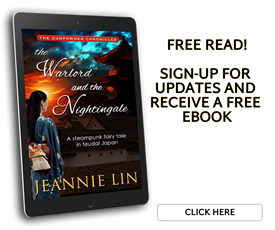
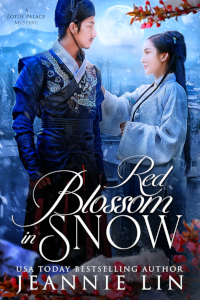
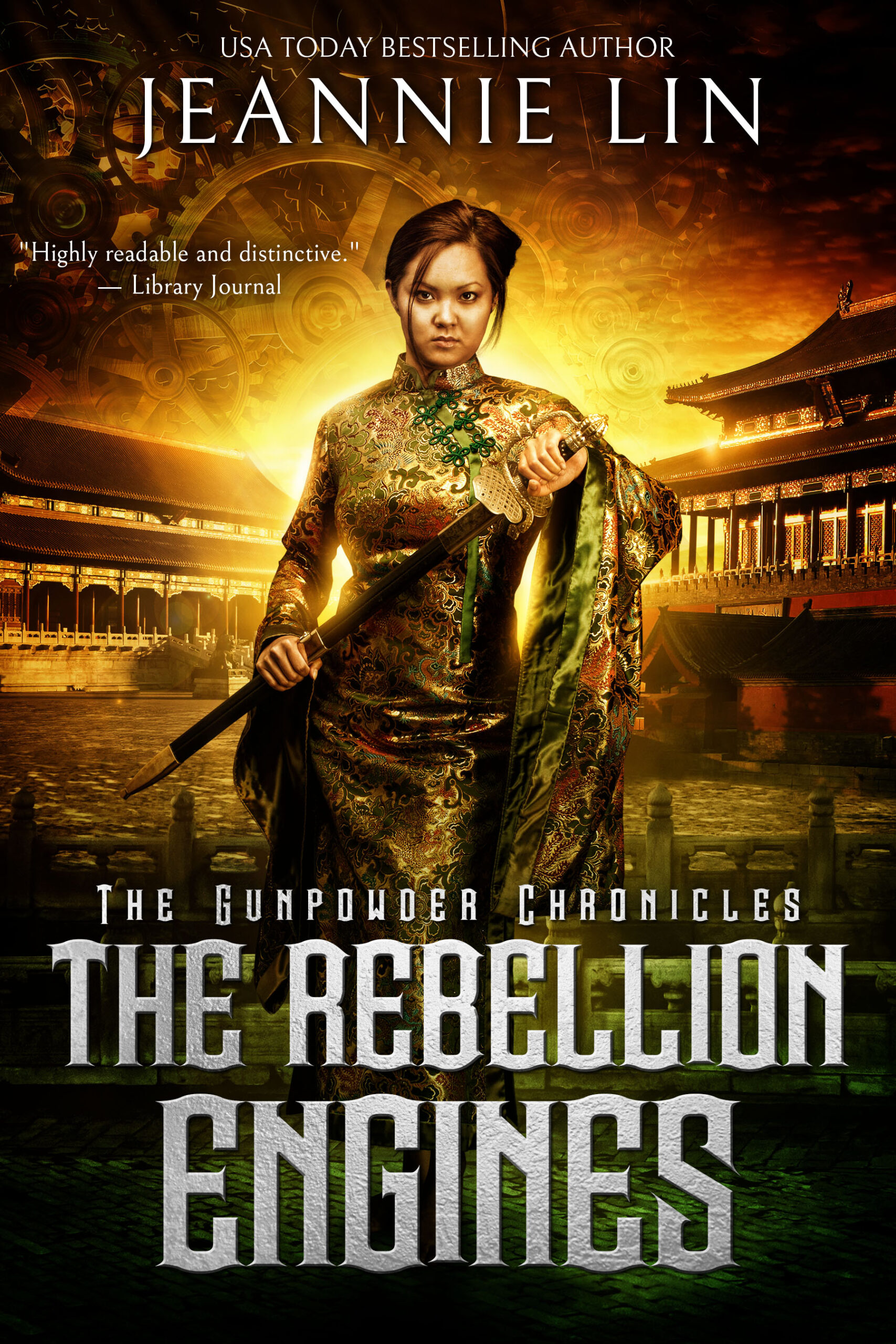
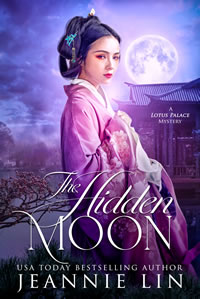
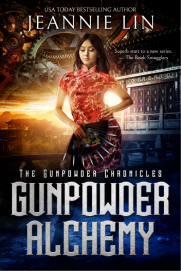
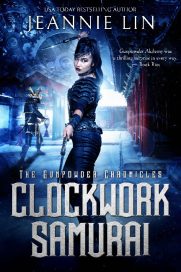
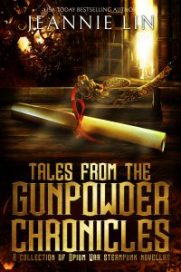
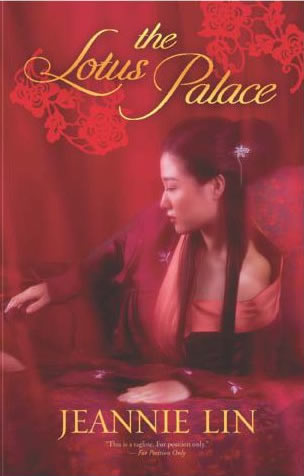
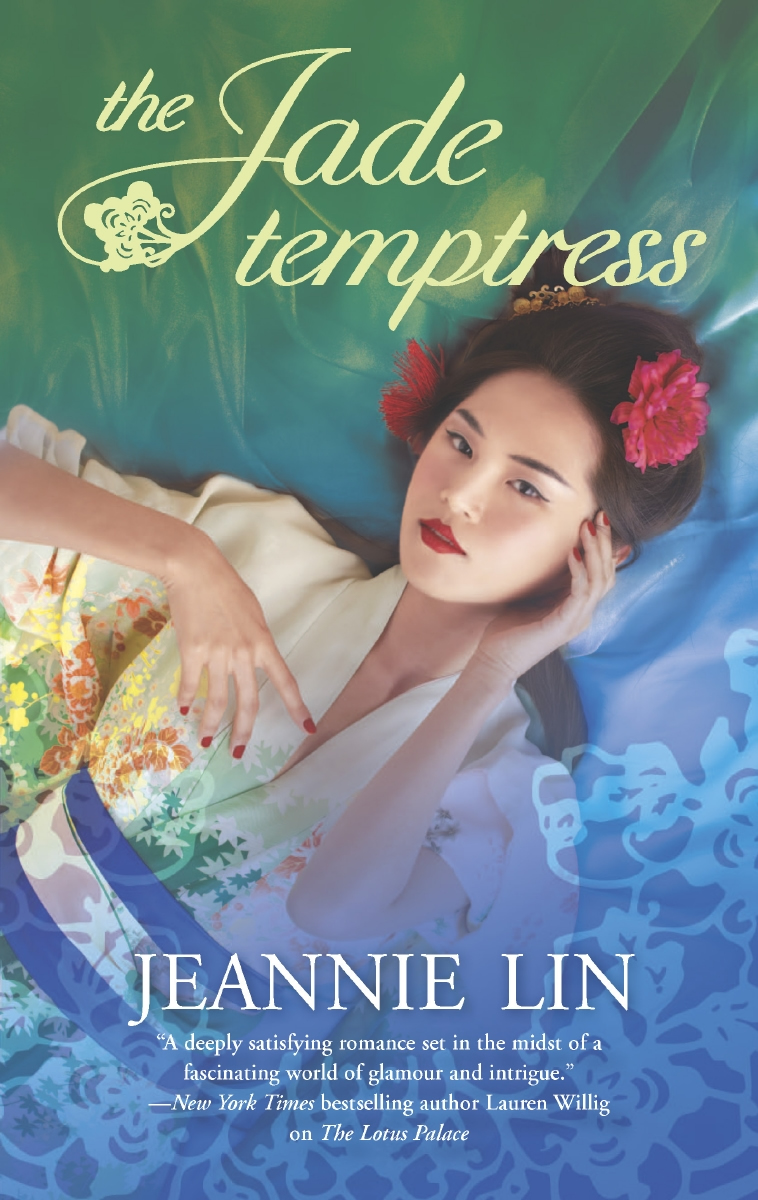
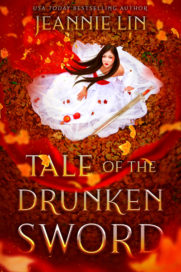


Oct 09, 2012 @ 06:26:17
Hi Jeannie!
Great post. 🙂
You’ve actually touched on something I’ve thought about for quite a while, which is the idea that in the main, both men and women fantasize about romance and love and sex. I’ve actually wondered for a long time why there seems to be such a stigma about the idea of men reading romance or stories with romantic subplots, because I’ve never known a man who didn’t want to love and be loved, and who didn’t hope to find that. I actually get, not a lot of emails/comments, but more than a few, about my books; men definitely respond to Terrible and the idea that the person inside matters, or that even those who don’t fit into the conventional “handsome” mold can still find romance.
And certainly some of the biggest-selling books aimed at men or bought by men contain plenty of romance and sex. I find it upsetting–extremely upsetting, actually–that books with romance in them written by women are dismissed, whereas men writing the same themes are embraced.
The desire to find love is a universal human one, you know? And yeah, I think most heroes are just as much male fantasy as female. I can’t believe, for example, that a man would love to be Aragorn but not want to be a BDB character, for example, when it’s almost the same basic archetype.
I wonder sometimes if it isn’t simply embarrassment, or stereotype, that leads men to ignore and dismiss female-written stories with romantic subplots or themes.
Or perhaps it’s simply that they don’t want to read the female POV?
Oct 09, 2012 @ 06:45:06
Stacia – I completely agree with your observations. Maybe we can blame marketing and packaging a little for differentiating the woman’s fantasy of love by packaging it in pink and purple and bare-chested men so obviously. I think the romantic subplots in science fiction or fantasy, and they abound, seem more acceptable for men to read. Your stories – which are gritty and dark — though written from a female POV are likely more accessible to men.
I wholeheartedly am with you about moving beyond such easy answers as stigma or embarrassment. I just happened to read a post by Zoe Marriott about the gender divide in YA (http://thezoe-trope.blogspot.com/2012/10/women-dominate-in-what-universe.html?spref=tw) that addresses some of that.
Maybe it’s female POV. Or maybe men are just more inclined to want to hear that sort of story from another man. Not in a he-man, women hating sort of way, but in a guy talk sort of way. J.K. Rowling used her initials so people wouldn’t know she was a woman. She didn’t hide the fact that she was a woman, but just looking on the cover you wouldn’t know. E.L. James can be a man or a woman. Again, she doesn’t hide it, but just looking at the cover you wouldn’t know. And those examples are phenomenally successful, eh?
Hmm…I think I’ll henceforth be J. Lin…maybe people will mistake me for Justin or Jeremy (no relation in either case) and buy my books in droves.
Oct 09, 2012 @ 08:06:24
Hi Jeannie! I don’t have anything intellegent to add because wow – this was a great, well-argued post. I’m in awe that you put this together while dealing with middle of the night feedings. 🙂 I just wanted to comment that I enjoyed it and appreciate you writing it.
Oct 09, 2012 @ 08:23:31
What a fabulous post and at 3 a.m. to boot! I love the theme and I can’t wait to read your book when it’s released. I think it’s proof that men still have fantasies about romantic love, otherwise authors like Nicholas Sparks wouldn’t have such a wide ranging audience. We may think of Sparks’ films as chick flicks, but male readers and moviegoers talk about the struggles a man goes through to hold onto the woman he loves. Awwww…
Men are so cute. 🙂
Oct 09, 2012 @ 11:17:44
Hiya Kat! Well, I was stuck in that limbo state when you can’t get back to bed but you’re not really ready to work yet. 🙂
Cassandra – Men ARE cute. I think I may be the only person who hasn’t seen or read a Nicholas Sparks book/film. Hmm…but maybe you’re onto something there. In the Chinese male fantasy of romantic love, there’s an awful lot of tragic endings…just as with Sparks. Maybe the male fantasy is to yearn but not get what he wants whereas the female one is to have her cake and eat it too?
Oct 09, 2012 @ 14:36:08
I think a lot about this. Most recently when a studiomate asked me about bronies and I was trying to explain how a third (not present) studio mate was very into a girl’s cartoon show and that that was okay.
Growing up as part of the generation where anime became mainstream I think we are beginning to see an opening up of romantic stories for men. Of course, the fantasy presented in shows like Tenchi Muyo! and Love Hina are pretty juvenile (wouldn’t it be cool if I lived with a bunch of cute girls who all liked me!) For more sophisticated romance stories, you still have to turn to female-targeted work. But at least they are something that is both romantic and explicitly boy-targeted.
Marketing is tied up so strongly into male identity that it’s not even funny. Women have done a really good job in the past 50 years of asserting their right to like and enjoy male-targeted stories and activities (action movies, sports, etc.) but there’s very little comparative movement for men. Or, at least, for straight men. Female marketed media is still seen as something inherently emasculating to even watch, let alone enjoy or seek out.
I appreciate your historical perspective. Ultimately, the gendered distinction about romance is strictly cultural: like pink for girls and blue for boys, we can see that “romance is for women” is something that varies over the course of history and culture. Our modern gender distinctions are actually quite recent, dating from the industrial revolution at the earliest. Correct me if I’m wrong (’cause I actually know more about Qing than Tang), but my impression is that the courtesan romances you described were seen as scandalous and pornographic. So it could be “scandalous stuff is okay for men but over the edge for women.”
(There’s probably a possible tangent here about how pornographic movies and photography might have replaced racy romance stories for men.)
I feel like we’re due for another shift in gender norms. From my pony-watching office mate, to your guy reading 50 Shades Darker, to my colleague Joe writing games inspired by Twilight, men are starting to get more open about liking “women’s stuff,” especially romance media. I wonder whether it’s going to take the form of “men’s romances” or whether it’ll be in the form of putative female-targeted media that tacitly acknowledges a large chunk of its audience is male.
Oct 10, 2012 @ 06:33:28
Hiya Ben!
Some great points in your reply:
“Women have done a really good job in the past 50 years of asserting their right to like and enjoy male-targeted stories and activities (action movies, sports, etc.) but there’s very little comparative movement for men. Or, at least, for straight men. Female marketed media is still seen as something inherently emasculating to even watch, let alone enjoy or seek out.”
I think this is a great point. This is something not just in media and entertainment, but other products as well. But inherent to it is also the idea that something masculine is powerful – women feel more powerful when they dress as men and like the things men like and those things become universally accepted, not as masculine necessarily, but as things ALL people should like. On one hand, it IS empowering that the gender lines and preferences are more blurred for women, but on the other hand it hasn’t been the same for men who want to cross those lines the other way. It’s considered emasculating to enjoy “feminine” things. Very much harkens back to ideas of power and marketing just plays into that. There is a bit of the “I’m confident in my masculinity” metrosexual sort of movement, but that is often looked down upon as being too weak or superficial or unmanly as well. There have been some HILARIOUS attempts to market at men such as the Dr. Pepper for men commercials, but I’m sure that’s the OPPOSITE of what you’re talking about.
An interesting parallel is how women were known to dress up as men in the Tang Dynasty. Not to pretend to be men, but as part of the fashion. It’s looked upon as one of the ways women were more liberated during the era – riding horses and playing polo and doing things traditionally men would do.
It’s been argued that some of the archetypes of the “empowered” female in historical times, the female warrior for instance, just simply play into valuing masculine characteristics over feminine ones, and isn’t truly empowerment since it’s just still reflecting male values. I don’t like this argument because it’s one of those no-win situations. The same thing has been said for the way that the Tang scholars held up the elite courtesans, that they were really just valuing the courtesans because these women made the scholars look good, in narcissistic fashion. Well, perhaps, but so much of admiration and respect is seeing in others what you value or wish for in yourself. I don’t like to twist that into something oppressive.
As to Qing vs. Tang, there’s speculation as to whether the stories were written for men or women. Though there were some remarkable female poets in the Tang Dynasty and literacy may have been higher for women among the elite, I think it’s more likely the courtesan stories were written for other scholars. It seems there was quite a tradition of trying to impress others and gain a good reputation through composing poems and stories in the Tang. Tang was also more open sexually so these romantic stories may have been looked upon as something more risque in later times.
Very interesting thoughts and I thank you for differentiating between the attitudes of different dynasties in your commentary. Many people can easily accept the differing attitudes of the 60s, 70s, and 80s in the West, but when talking about China with thousands of years of history, they lump it into one big ball of sameness! Much respect.
Oct 23, 2012 @ 12:41:51
This is very interesting to me, because I have made similar arguments/observations about the medieval origins of courtly love. The idea of courtly love formulated in the Middle Ages (by Andreas Capelanus, among others) was long thought to be both a feminine distraction, as well as a means of objectifying women, and thereby oppressing them. But I think it’s a lot more about male distraction, male fantasy, and inn a very real sense, about objectifying men. I’m really glad I stumbled on this essay; thanks for sharing it!
Oct 24, 2012 @ 08:51:39
Raven – I’m glad you stopped by. I’ve only touched upon courtly love in a few survey classes at university – specifically German chivalric literature. (I was a science gal in college, so only took some history and lit to fulfill a humanities requirement as well as my own curiosity.) I really appreciate the cross-cultural perspective you’ve provided and will have to read up a bit on Andreas Capelanus.